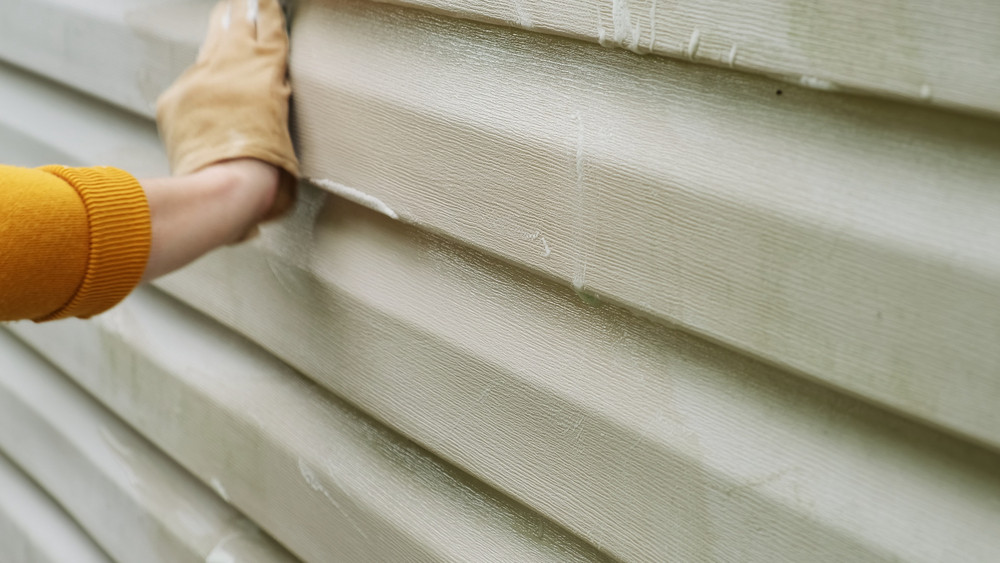Highlights:
- Licensing and Credentials: Illinois requires a Limited Roofing Contractor License for residential work under eight dwelling units; unlimited licenses cover a broader scope. Source: ROCKETCERT
- Insurance and Bonding: Contractors must carry liability and workers’ compensation insurance, plus a surety bond or property damage coverage per the Illinois Department of Financial and Professional Regulation (IDFPR).
- Roofing Materials & Techniques: Quality roofing contractors use durable underlayment, ventilation systems, and follow code-approved installation methods to prevent leaks and ensure longevity.
- Siding Options & Best Practices: Homeowners should understand how to choose between vinyl, fiber cement, wood, or insulated siding, and ensure proper cavity spacing, flashing, and barriers.
- Permits & Building Code Compliance: A licensed contractor will secure local permits and follow Urbana’s building codes for roof slope, ventilation, and siding installation.
- What to Ask Potential Contractors: Key questions include: what licenses do they hold? Are insurance and bond certificates available? What warranties come with roofing and siding? What code standards do they follow?

What Licensing Should a Residential Roofing Contractor in Urbana Hold?
In Illinois, any contractor offering roofing services must be licensed by the Illinois Department of Financial and Professional Regulation (IDFPR). For residential projects involving single-family homes or buildings up to eight units, a Limited Roofing Contractor License is required; larger residential or mixed-use work requires an unlimited license. Applicants must pass state-mandated exams, maintain liability and workers’ comp insurance, and submit a surety bond or property damage coverage document. Ensuring your contractor holds the correct license helps guarantee compliance with local and state regulations—and protects you legally and financially.
What Insurance and Financial Protections Should be in Place?
Beyond licensing, contractors are required to maintain proper insurance and bonding. According to IDFPR, proof of liability insurance and workers’ compensation coverage is mandatory before performing work. In addition, contractors must file a surety bond (or similar financial security) as part of their licensing, ensuring redress in case of property damage or incomplete work. Homeowners should request insurance certificates and bonding documentation directly—validating these credentials gives reassurance that any accidents or workmanship issues are protected.
How Do Quality Roofing Materials and Installation Techniques Influence Performance?
A reliable contractor uses industry-standard materials: asphalt shingles, underlayment, ventilation systems, flashing, and drip edges. Proper installation includes attic ventilation, ice-and-water barriers, and correct shingle nailing—preventing leaks, mold, and premature wear. While exact manufacturer protocols vary, compliance with building codes and best installation practices ensures roof durability and function. Ask potential contractors how they manage ventilation, flashing around chimneys and valleys, and how they ensure a watertight roof system. A well-executed installation reduces repair costs and extends service life.
Which Siding Materials are Available, and What are Their Pros and Cons?
Homeowners in Urbana have multiple siding options, each with unique benefits:
- Vinyl siding: Affordable and low-maintenance but less fire-resistant; trending colors and better impact resistance are improving its appeal.
- Fiber-cement: Durable, fire-resistant, mimics wood, but requires careful handling due to dust and requires a two-person installation.
- Wood or engineered wood: Offers natural aesthetics but higher maintenance and susceptibility to pests.
Discuss environmental factors, your aesthetic preferences, and budget with contractors to align siding choice with your home’s needs.
What Installation Standards Ensure Lasting Siding Performance?
Professional contractors follow key installation guidelines:
- Site acclimation: Materials should be unbundled and acclimated on-site for 10–14 days before installation.
- House wrap and flashing: A continuous weather-resistant barrier and proper flashing (Z-bar, window trims) protect against moisture intrusion.
- Fastener placement: Follow manufacturer specs for nail type, spacing, and penetration to framing—critical for wind load and durability.
- Panel overlap: Horizontal siding must be installed from bottom up with a defined overlap for water shedding.
- Compliance with codes: Install according to local codes and ICC/IRC standards; manufacturers’ specs override only if codes allow.
These measures help prevent warping, moisture damage, and ensure visual consistency.
Source: Southern Living
What Permits and Inspections are Required for Roofing and Siding in Urbana?
Most major roofing replacements and full-home siding projects require building permits from Urbana’s permitting office. Roofing permits typically involve verifying roof slope, ventilation specs, and code-compliant underlayment. Siding permits ensure that shear-blocking, weathertight barriers and flashing meet building codes. Contractors should submit engineered drawings or plans as needed and coordinate inspection scheduling. Asking “Who will pull the permits, and when are inspections scheduled?” will clarify responsibilities and prevent costly start or stop orders during construction.

What’s the typical timeline for a residential roofing or siding project?
Understanding how long a project will take can help homeowners in Urbana plan around weather, access, and household disruptions. A full roof replacement on an average-sized home typically takes 1 to 3 days, depending on weather, tear-off complexity, and ventilation or decking repairs. More complex roofs—those with multiple peaks, chimneys, or dormers—can extend timelines.
Siding projects take longer, generally 7 to 14 days, depending on square footage, material (vinyl installs faster than fiber cement), and whether old siding needs removal. Delays can occur due to supply chain issues, weather conditions, or inspection scheduling. Reliable contractors will build a buffer into their estimate and keep you updated on progress.
Always ask for a proposed timeline up front, including start date, estimated completion, and contingency planning. Also, clarify daily work hours, staging areas for materials, and cleanup protocols. A clear schedule not only sets expectations—it also reflects the contractor’s professionalism and project management ability.
How is Pricing Structured, and What Should Homeowners Expect?
Contractors usually provide itemized estimates covering labor, materials, underlayment, ventilation, flashing, permits, waste disposal, and clean-up. Roofing is often calculated per square (100 sq ft), with additional costs for tear-off, structural upgrades, and ventilation. Siding is priced per square foot or per panel, factoring in prep work, barrier systems, trim pieces, and material choice. Good contractors include allowances for hidden issues (e.g., rotted sheathing). Ask about payment schedules, definitions of “substantial completion,” warranty inclusions, and change-order processes—clarity here helps prevent disputes later.
What Warranties and Post-Installation Services Should be Clarified?
Reliable contractors offer:
- Manufacturer’s warranty: Coverage on shingles or siding material (typically 25‑50 years).
- Workmanship warranty: Usually 1–5 years for labor and installation errors.
- Roof certification: Some may offer roof inspections and certification post-installation for insurance or resale.
- Maintenance guidance: Advice on cleaning schedules, gutter care, ventilation checks, and siding upkeep.
Before hiring, ask for detailed warranty terms in writing. Knowing what’s covered and how to file claims ensures long-term protection for your investment.
Choosing the Right Urbana Roofing and Siding Contractor: Questions to Ask
When vetting professionals, ensure they:
- Hold the correct IDFPR license
- Show valid insurance and bonding certificates
- Detail materials, ventilation, flashing, and underlayment choices
- Explain siding material options, benefits, and installation steps
- Handle permits and inspections through Urbana city authorities
- Provide clear, itemized estimates and a change order policy
- Include both manufacturer and workmanship warranties
- Offer maintenance instructions and follow-up services
These questions help separate competent professionals from those who cut corners—protecting you, your home, and your budget.
Securing Quality and Peace of Mind
Selecting a trustworthy residential roofing and siding contractor in Urbana, IL, starts with verifying licensing, insurance, and bonding—ensuring legal and financial safeguards. Understand your roofing needs: ventilation, flashing, underlayment, and chosen materials make a lasting difference. For siding, weigh aesthetic preferences against performance characteristics—vinyl, wood, fiber-cement, or insulated siding all have pros and cons. Proper installation techniques—such as acclimation, weather barriers, fastener placement, and panel overlap—are fundamental to longevity.
Ensure your contractor handles local permits and inspections to avoid regulatory issues. Transparent, detailed pricing with clearly defined payment terms and allowances provides accountability. Warranties—both material and workmanship—protect you after completion, and planned maintenance guidance helps prolong lifespan. By asking informed questions and confirming credentials, you’ll partner with a contractor who delivers a durable, good-looking, and compliant exterior—building value and peace of mind for years to come.